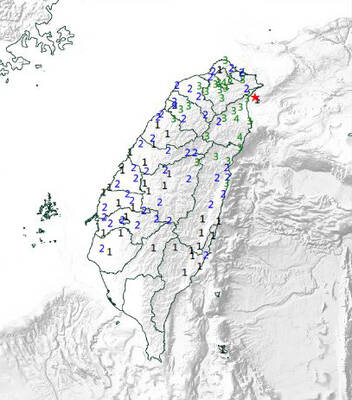The Ministry of Health and Welfare yesterday warned that melatonin, which is used to treat sleeping disorders, has never been approved in the nation, so purchasing it abroad and selling it in Taiwan is against the law.
According to a survey by the Taiwan Society of Sleep Medicine, about one in five, or 20.2 percent, of Taiwanese suffer from chronic sleep disorder.
Statistics released by the Food and Drug Administration (FDA) in February also showed that a total of 339 million sleeping pills were consumed in Taiwan in 2014.
While many people are worried about the side effects of taking sleeping pills regularly, such as dizziness or lightheadedness, prolonged drowsiness, headaches, gastrointestinal problems, severe allergic reactions or daytime memory and performance problems, some turn to melatonin to help them deal with insomnia.
In some countries like the US, melatonin is considered a dietary supplement and can be purchased over the counter. Some use it to adjust the body’s internal clock, such as when suffering from jet lag or shift-work disorder.
However, Chi Jo-feng (祁若鳳), a senior technical specialist at the Food and Drug Administration, said melatonin has been listed as a controlled substance in Taiwan since 1996.
No local pharmaceutical company has ever applied for a drug manufacturing license, so production or selling of melatonin is illegal in the nation, Chi said.
According to the Pharmaceutical Affairs Act (藥事法), people who import or sell illegal drugs, such as melatonin, can face up to 10 years in prison or a fine of up to NT$50 million (US$1.55 million), the ministry said.
People can purchase melatonin for personal use, but are allowed to bring in only 12 bottles, it said, adding that selling them is strictly against the law.
“Taking melatonin regularly for an extended period can change the natural production and release of melatonin in the body,” Lin Chia-mo (林嘉謨), chief director of the Sleep Research Center at Shin Kong Memorial Hospital, said yesterday, adding that the dosage and ingredients of these products are not universal and could be confusing to users.
Moreover, overseas studies have shown that a high dosage of melatonin can cause possible side effects, including nausea, vomiting, daytime sleepiness or even affect fertility.

A 72-year-old man in Kaohsiung was sentenced to 40 days in jail after he was found having sex with a 67-year-old woman under a slide in a public park on Sunday afternoon. At 3pm on Sunday, a mother surnamed Liang (梁) was with her child at a neighborhood park when they found the man, surnamed Tsai (蔡), and woman, surnamed Huang (黃), underneath the slide. Liang took her child away from the scene, took photographs of the two and called the police, who arrived and arrested the couple. During questioning, Tsai told police that he had met Huang that day and offered to

LOOKING NORTH: The base would enhance the military’s awareness of activities in the Bashi Channel, which China Coast Guard ships have been frequenting, an expert said The Philippine Navy on Thursday last week inaugurated a forward operating base in the country’s northern most province of Batanes, which at 185km from Taiwan would be strategically important in a military conflict in the Taiwan Strait. The Philippine Daily Inquirer quoted Northern Luzon Command Commander Lieutenant General Fernyl Buca as saying that the base in Mahatao would bolster the country’s northern defenses and response capabilities. The base is also a response to the “irregular presence this month of armed” of China Coast Guard vessels frequenting the Bashi Channel in the Luzon Strait just south of Taiwan, the paper reported, citing a

BETTER SERVICE QUALITY: From Nov. 10, tickets with reserved seats would only be valid for the date, train and route specified on the ticket, THSRC said Starting on Nov. 10, high-speed rail passengers with reserved seats would be required to exchange their tickets to board an earlier train. Passengers with reserved seats on a specific train are currently allowed to board earlier trains on the same day and sit in non-reserved cars, but as this is happening increasingly often, and affecting quality of travel and ticket sales, Taiwan High-Speed Rail Corp (THSRC) announced that it would be canceling the policy on Nov. 10. It is one of several new measures launched by THSRC chairman Shih Che (史哲) to improve the quality of service, it said. The company also said

A magnitude 6 earthquake last night at 9:11pm struck off northeastern Yilan County, the Central Weather Administration (CWA) said. The earthquake’s epicenter was located in waters between Toucheng Township (頭城) and Turtle Island (Gueishan Island, 龜山島), about 22.1km northeast of Yilan County Hall at a depth of 112km, CWA data showed. There were no immediate reports of damage. The earthquake’s intensity, which gauges the actual effects of a temblor, was highest in Yilan’s Dongshan (冬山) and Nanao (南澳) townships and Taipei’s Xinyi District (信義), where it measured 4 on Taiwan’s seven-tier intensity scale. It measured 3 in other areas of Yilan and Taipei, as